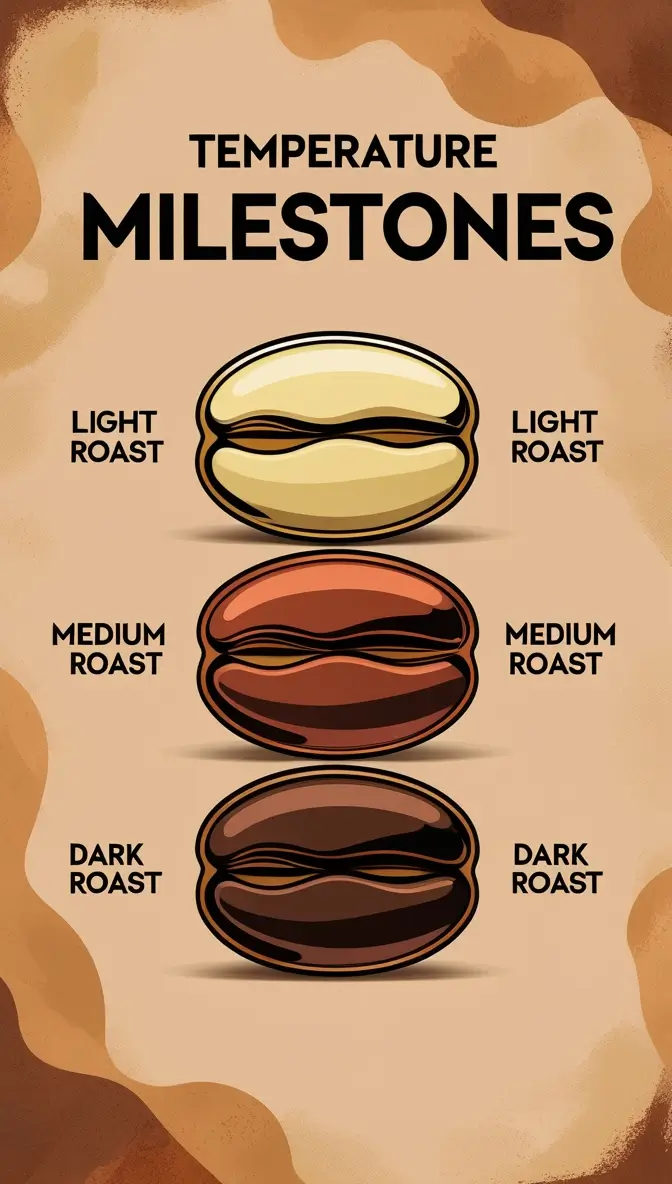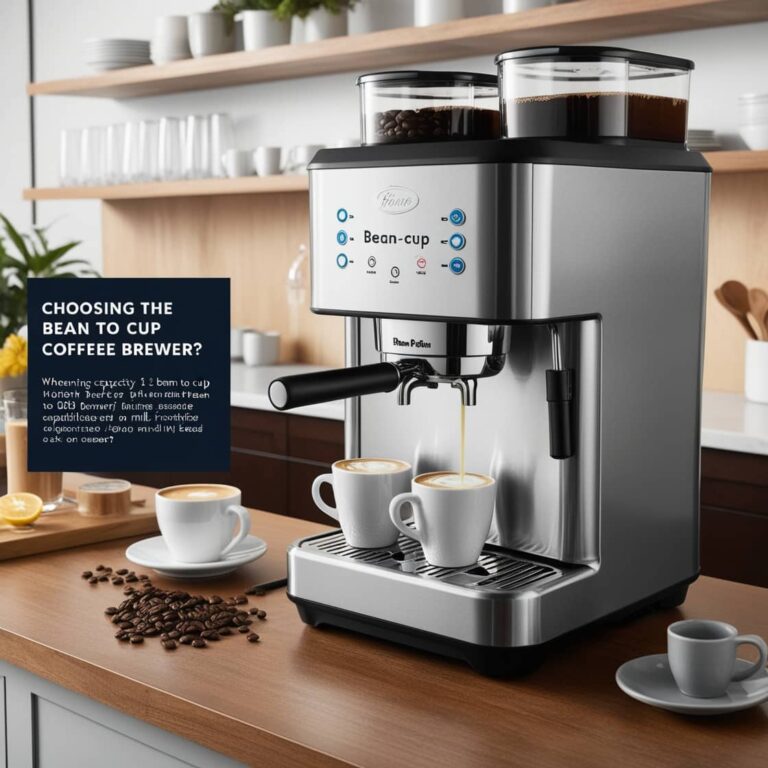7 Top Tips How to Roast Coffee Beans at Home for Perfect Results Every Time

As a coffee roasting expert with over a decade of experience, I’m excited to share my top seven professional tips on how to roast coffee beans at home. Whether you’re just starting your journey in learning how to roast your own coffee or looking to perfect your technique, these expert insights will help you achieve consistently excellent results. The art of coffee roasting combines precision, patience, and practice – and with these tips, you’ll be roasting like a pro in no time.
Understanding the Basics Before You Begin
Before diving into the expert tips for how to roast your own coffee beans, it’s crucial to understand the fundamentals of the roasting process. Coffee roasting is a chemical and physical transformation that turns dense, green coffee beans into the aromatic, flavorful beans we know and love. This understanding forms the foundation for successful home roasting.
Essential roasting concepts:
– Heat transfer principles
– Bean moisture content
– Chemical reactions during roasting
– Physical changes in the beans
– Time and temperature relationship
– Flavor development stages
1. Choose the Right Equipment for Your Needs
The first step in learning how to roast coffee beans successfully is selecting appropriate equipment. Your choice of roasting equipment will significantly impact your results and overall experience.
Equipment considerations:
– Budget constraints vs. desired output
– Available space and ventilation
– Batch size requirements
– Level of control needed
– Maintenance requirements
– Learning curve
Recommended Equipment Options:
Entry-level options:
– Cast-iron skillet ($20-30)
– Air popcorn popper ($25-40)
– Heat gun method ($50-75)
Mid-range options:
– Fresh Roast SR540 ($189)
– Behmor 1600 Plus ($369)
– Gene Cafe ($495)
Professional options:
– Hottop KN-8828B-2K ($1,000+)
– Aillio Bullet R1 ($2,500+)
– Mill City Roasters ($5,000+)
2. Source Quality Green Coffee Beans

Success in roasting your coffee begins with selecting high-quality green beans. Understanding bean origins, varieties, and processing methods will help you make informed choices.
Key factors in bean selection:
– Growing region and altitude
– Processing method
– Bean density and size
– Crop harvest date
– Storage conditions
– Supplier reputation
– Price point
– Flavor potential
3. Master the Roasting Stages

Understanding and recognizing the different stages of the roasting process is crucial when learning how to roast coffee beans. Each stage represents specific physical and chemical changes in the beans.
Detailed roasting stages:
1. Green Phase (0-2 minutes):
– Initial heating
– Beans remain green
– Grassy smell
2. Yellow Phase (2-5 minutes):
– Beans turn yellow
– Steam release begins
– Hay-like aroma
3. First Crack (7-9 minutes):
– Loud popping sound
– Significant bean expansion
– Light roast achieved
4. Development Phase (9-11 minutes):
– Color darkening
– Oil migration begins
– Flavor compounds develop
5. Second Crack (11-13 minutes):
– Softer crackling sounds
– Oils on surface
– Dark roast characteristics
4. Control Temperature and Timing
Temperature control and timing are perhaps the most critical aspects of roasting your coffee beans successfully. Mastering these elements will help you achieve consistent results.

Essential temperature control principles:
– Starting temperature range
– Rate of rise (ROR)
– Heat adjustment timing
– Temperature plateaus
– Cooling process
– Environmental factors
Temperature Milestones:
Light Roast:
– First Crack begins: 385°F (196°C)
– End temperature: 401°F (205°C)
– Total time: 8-10 minutes
Medium Roast:
– Development after First Crack: 15-25 seconds
– End temperature: 428°F (220°C)
– Total time: 10-12 minutes
Dark Roast:
– Second Crack begins: 437°F (225°C)
– End temperature: 446°F (230°C)
– Total time: 12-15 minutes
5. Perfect Your Cooling Technique
Proper cooling is often overlooked when learning how to roast coffee beans, but it’s crucial for achieving desired flavors and preventing over-roasting.
Cooling best practices:
– Use a dedicated cooling tray
– Implement forced air cooling
– Maintain bean movement
– Monitor cooling rate
– Remove chaff
– Achieve room temperature quickly
6. Document Everything
Keeping detailed records is essential for improving your technique in how to roast your own coffee beans. Documentation helps you replicate successful roasts and learn from mistakes.
Important data points to record:
– Date and time
– Bean variety and origin
– Batch size
– Starting temperature
– Time to first crack
– Development time
– End temperature
– Cooling duration
– Cupping notes
– Environmental conditions
7. Learn to Cup and Evaluate
Developing your palate and evaluation skills is crucial for improving how to roast coffee beans effectively. Professional cupping techniques help you assess your results objectively.
Cupping protocol:
– Proper sample preparation
– Standardized evaluation forms
– Aroma assessment
– Break and crust evaluation
– Flavor analysis
– Body evaluation
– Acidity assessment
– Defect identification
Common Roasting Mistakes to Avoid
When learning how to roast your coffee, being aware of common pitfalls can help you achieve better results faster.
Frequent mistakes:
– Insufficient preheating
– Inconsistent agitation
– Poor temperature control
– Inadequate ventilation
– Improper cooling
– Incorrect storage
Advanced Roasting Techniques
Once you’ve mastered the basics of how to roast coffee beans, you can explore more advanced techniques for better results.
Advanced considerations:
– Profile roasting
– Bean density adjustments
– Airflow manipulation
– Heat transfer optimization
– First crack management
– Development time ratio (DTR)
Storage and Aging Guidelines
Proper storage after learning how to roast your own coffee is crucial for maintaining quality and flavor.
Storage best practices:
– Use appropriate containers
– Consider degassing time
– Control environment
– Monitor aging process
– Rotate stock
– Maintain freshness
Safety Considerations
Safety should always be a priority when learning how to roast coffee beans at home.
Essential safety measures:
– Proper ventilation
– Fire safety equipment
– Heat protection
– Electrical safety
– Equipment maintenance
– Emergency procedures
Conclusion
Mastering how to roast coffee beans at home is a rewarding journey that combines science, art, and dedication. By following these seven expert tips and maintaining attention to detail, you can achieve professional-quality results in your home roasting endeavors. Remember that becoming proficient at how to roast your own coffee takes time and practice, but the reward of freshly roasted, perfectly crafted coffee makes it all worthwhile.
Whether you’re using basic equipment or have invested in professional-grade machinery, the principles remain the same. Focus on understanding the process, maintaining consistent procedures, and developing your sensory skills. As you continue to practice and refine your technique, you’ll discover the joy of creating custom roasts that perfectly match your taste preferences.
Don’t be discouraged by initial challenges – every professional roaster started as a beginner. With patience, attention to detail, and a willingness to learn from both successes and failures, you’ll soon be creating coffee roasts that rival those of professional roasters. Keep experimenting, keep learning, and most importantly, enjoy the journey of becoming a skilled home coffee roaster.






